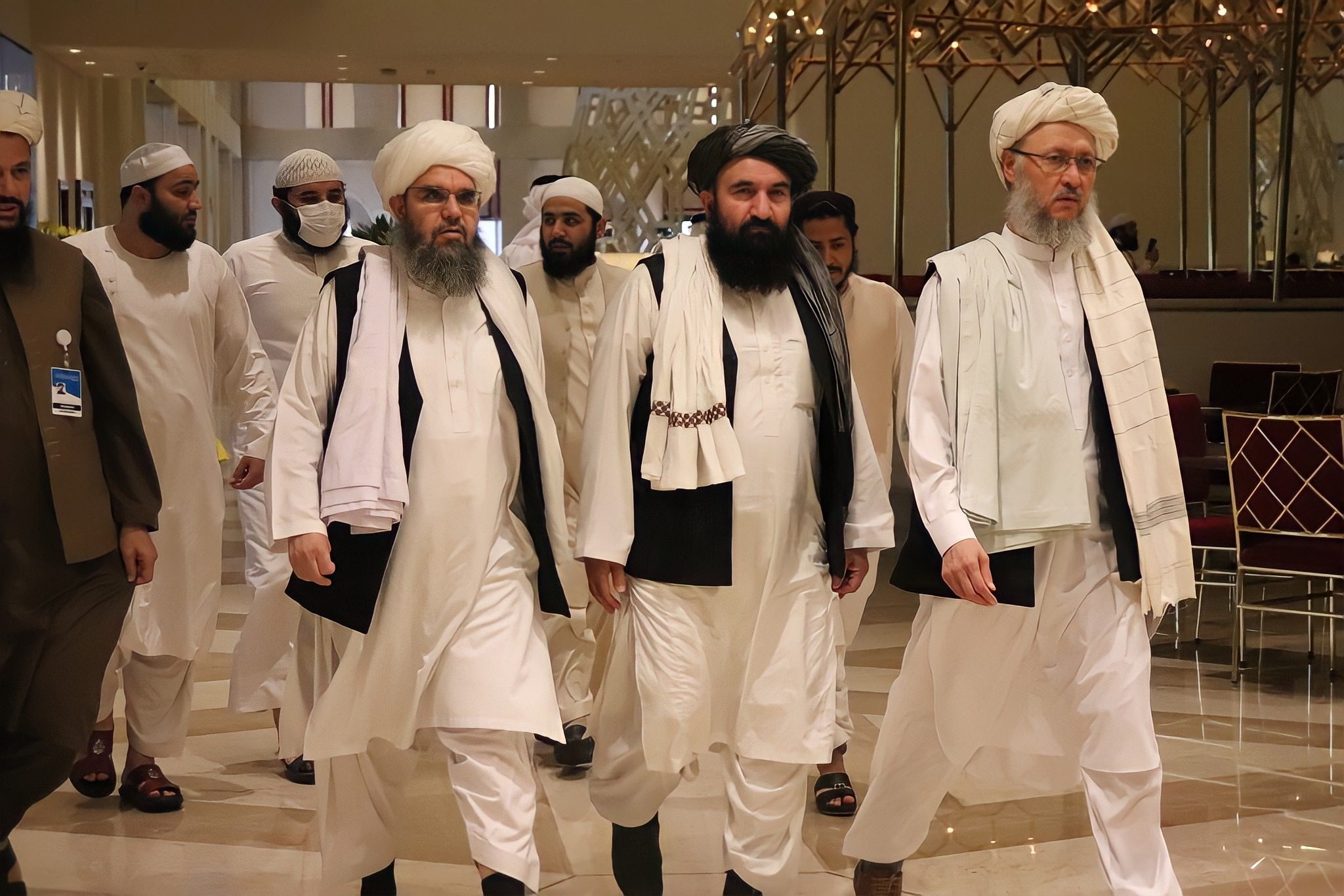Civilians in Afghanistan are at risk of a deadly war if no ceasefire is reached soon.
Envoys at this week’s Afghan meetings in Doha said that they would not recognise “any government in Afghanistan that is imposed through the use of military force”, read a joint statement released on Thursday.
Talks in Qatar began on Tuesday amid a military escalation in Afghanistan that saw the Taliban capture more provincial capitals at an alarming pace.
Following the third session of meetings, diplomats “raised grave concerns” over the latest attacks, rising civilian casualties as well as extra-judicial killings, acknowledging that such acts obstruct the path to reconciliation in Afghanistan.
The statement said diplomats at the meetings took note of converging statements from both the Afghan government and the Taliban’s side on several principles that can pave the way for a political statement.
Such principles include: having inclusive governance; respect for human rights including the rights of women and minorities; a mechanism to deliver a representative government; a commitment to not allow any individuals or groups to use the soil of Afghanistan to threaten the security of other countries; and respect for international and humanitarian law.
“Participants called on all Afghan sides to act in accordance with these principles and build on them in the future political settlement,” the statement added.
Envoys and representatives also called for an acceleration to the stalled peace process “as a matter of great urgency on the basis of the negotiations of concrete proposals from both sides”.
Tuesday’s meetings were attended by special envoys and representatives from China, Uzbekistan, the US, Pakistan, the UK, Qatar, the UN and the EU.
Days later on Thursday, representatives from Germany, India, Norway, Qatar, Tajikistan, Turkey, Turkmenistan, the US and the UN held meetings.
“Participants urged both sides to take steps to build trust and accelerate efforts to reach a
political settlement and comprehensive ceasefire as quickly as possible,” added the joint statement, while calling on warring factions to immediately stop violence in Afghanistan.
All parties at this week’s sessions said they remain committed to assisting in the reconstruction of Afghanistan once “a viable political settlement is reached” between the warring factions.
The statement did not mention a ceasefire and as of now, there is no announcement on the halting of deadly attacks in Afghanistan.
However, reports said Afghan government negotiators offered the Taliban a power-sharing deal at the Doha talks, though no official announcement has been made.
“Yes, the government has submitted a proposal to Qatar as mediator. The proposal allows the Taliban to share power in return for a halt in violence in the country,” a source told AFP.
Violence in Afghanistan escalated since US President Joe Biden’s announcement in April to withdraw American and NATO forces by 11 September, two decades since the foreign invasion began.
Throughout the process, the US said it will be moving approximately 1,000 military personnel to Qatar in order to fast-track the processing of Afghan Special Immigrant [SIV] visa applications.
“The next movement will consist of a joint US Army-Air Force support element of around 1,000 personnel to facilitate the processing of SIV applicants. Initial elements will arrive in Qatar in the coming days,” Pentagon Spokesperson John Kirby said during a press conference on Thursday.
Growing Taliban control
Hours after the meetings in Qatar ended, the Taliban captured Afghanistan’s third-largest city of Herat after taking control of Ghazni on the same day, making the former the eleventh provincial capital to be seized by the militants in a week.
The other provincial capitals include Faizabad, Farah, Pul-e-Khumri, Sar-e-Pul, Sheberghan, Aybak, Kunduz, Taluqan and Zaranj.
On Wednesday, the militants captured Afghanistan’s borders with Tajikistan and Uzbekistan, but promised not to engage in fighting in the two countries.
Diplomats around the world said the decision was sudden and rebuked Washington for failing to ensure the pullout is completed with a proper peace plan.
Since the beginning of the troop withdrawal in May, the United Nations Office for the Coordination of Humanitarian Affairs [OCHA] said there are at least 244,000 internally displaced people [IDPs] in Afghanistan—a 300% increase in comparison with the same period last year.







